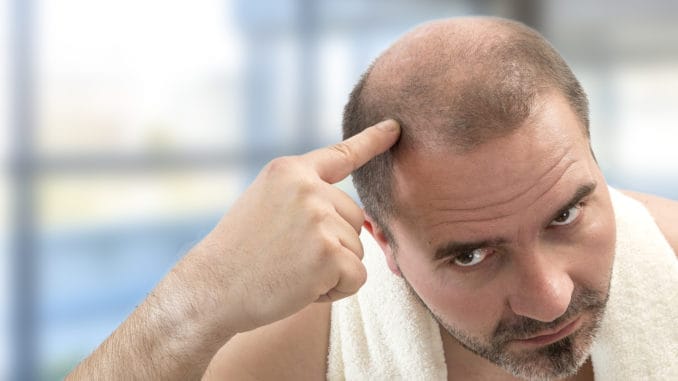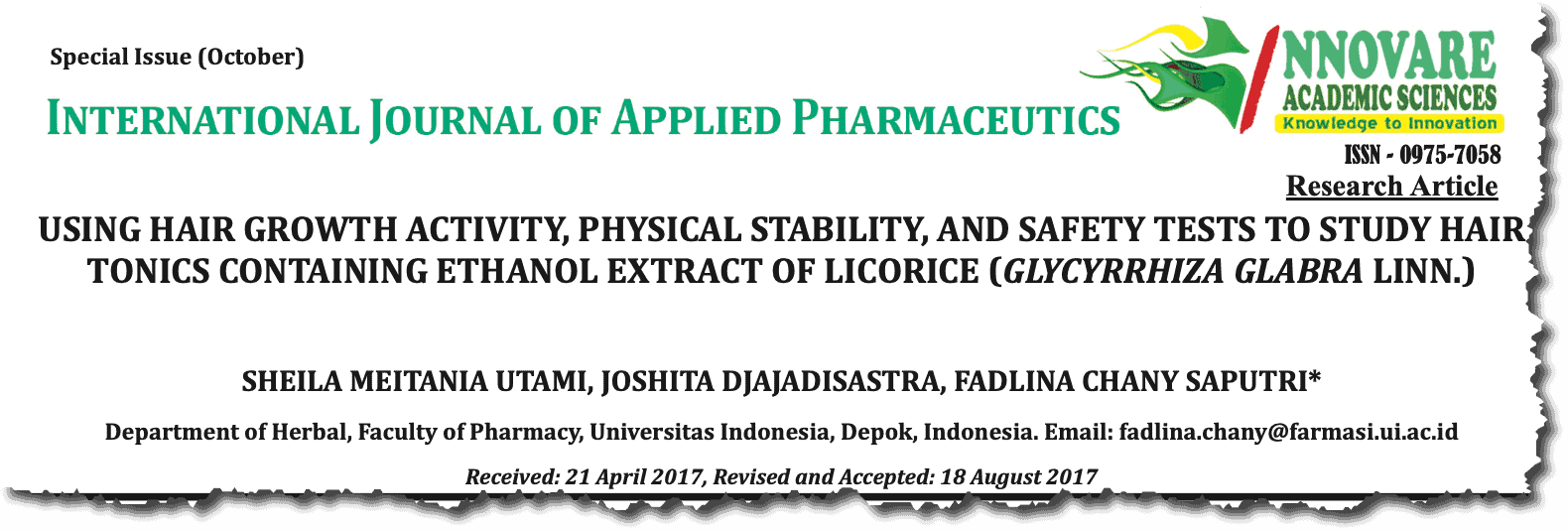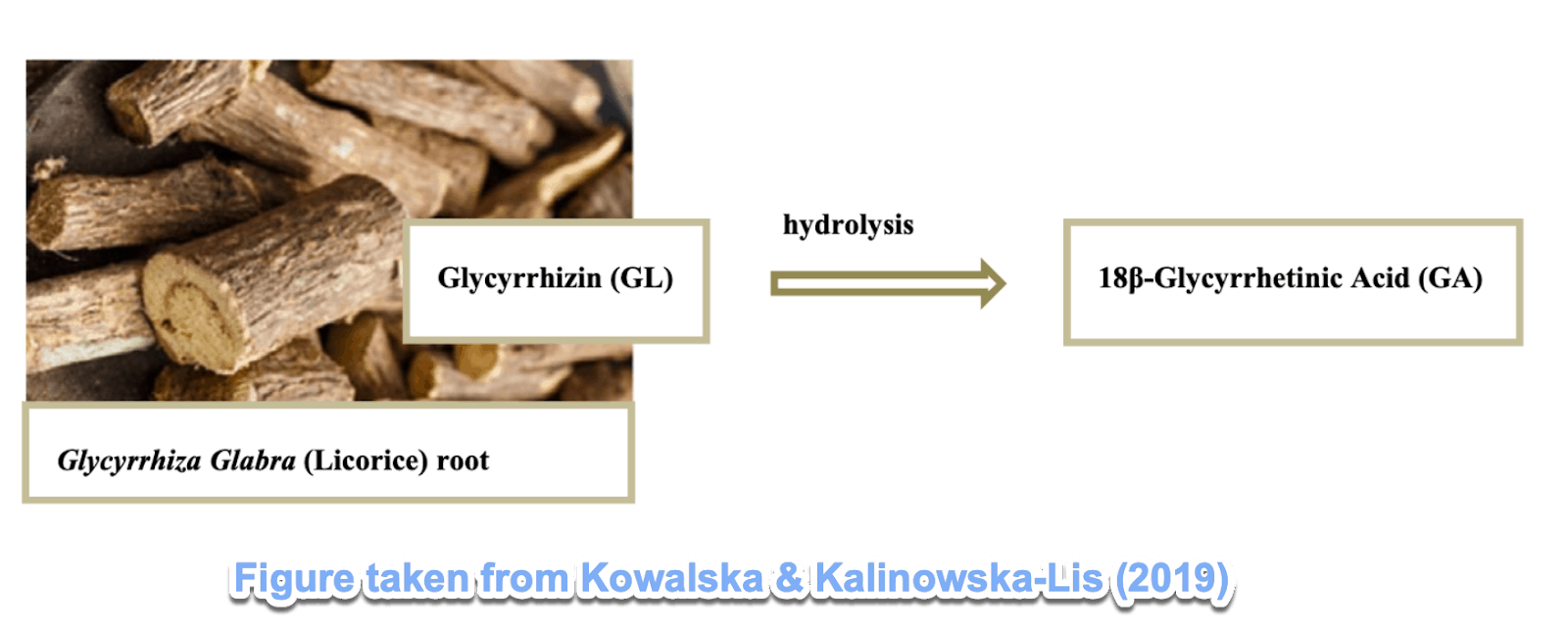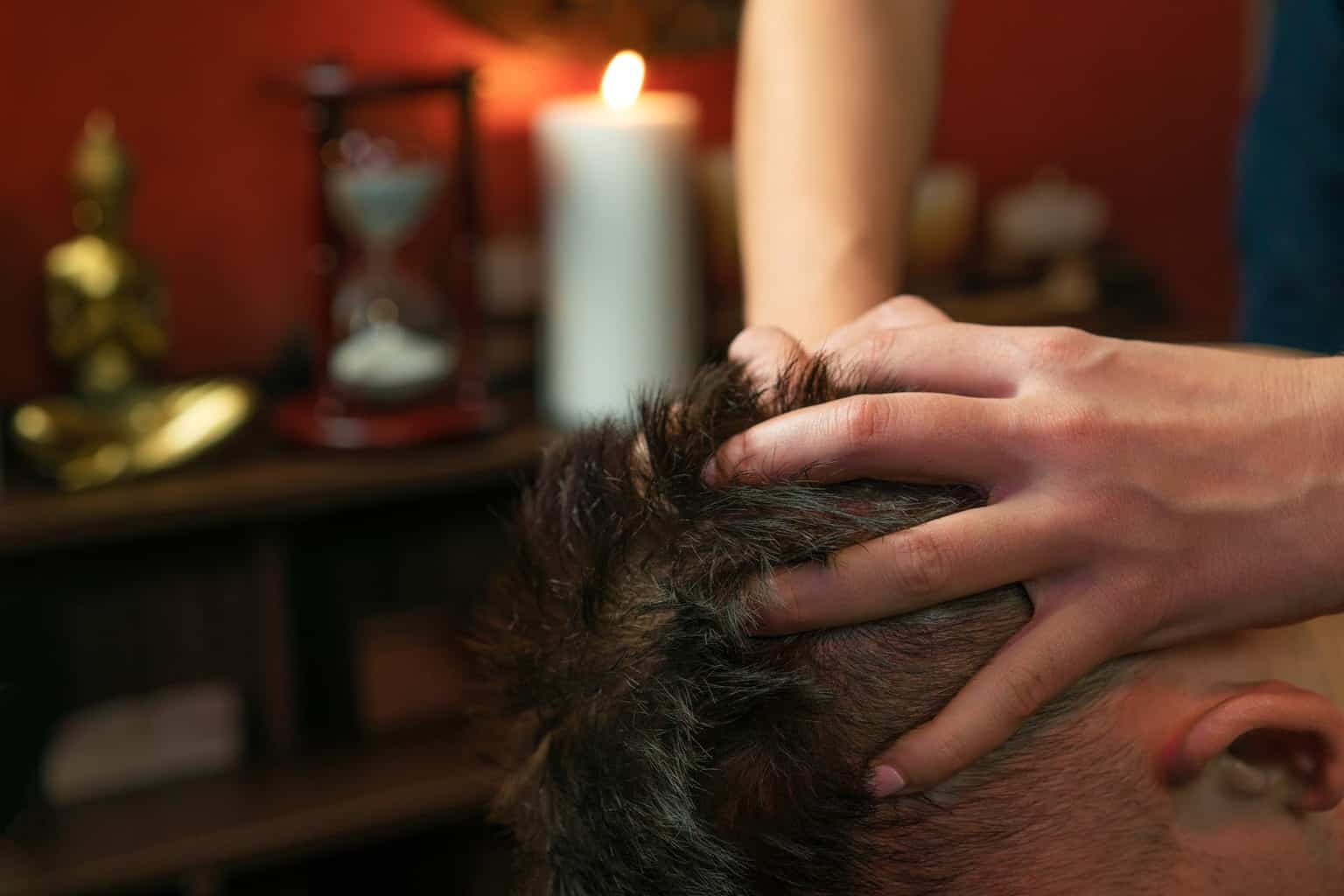
Just rub it on your scalp at night and let it work while you sleep
—-Important Message From Our Sponsor—-
This is pretty shocking…amazing results in just 7 minutes
This weird method will make sure your girl never even THINKS about cheating…
———-
This weird natural extract can slow down hair loss in men
Extract of licorice root has been a popular herbal therapeutic remedy since ancient times, being one of the most common herbs in traditional Chinese healing.
With modern research, we now know more about licorice root’s mechanism of action.
Specifically, the compound which gives licorice its sweetness, glycyrrhizic acid, appears to be very biologically active, and can downregulate the metabolism of cortisol, at least when applied topically.

This is particularly relevant for hair loss, because cortisol is a major player in the pathology of so-called “androgenic” pattern baldness, in both sexes:
“Our findings showed a significant elevation of [cortisol] in both male and female [hair loss] patients compared to controls, pointing to the [adrenal glands] as a contributing factor in [male pattern baldness].” – Schmidt (1994)
Inhibition of cortisol formation by glycyrrhizic acid
Cortisol is a stress hormone (or glucocorticoid) secreted by the adrenal glands, which sit at the top of the kidneys.
Cortisol plays a fundamental role in regulating processes in the human body to optimize resources in the face of stress.
In fact, cortisol is the foremost glucocorticoid regulating the stress “fight or flight” reaction:
“Cortisol is the major glucocorticoid for humans, monkeys, guinea pigs, and some other mammals.” – Constance R. Martin (1986)
During stress (or hypoglycemia) cortisol restores blood glucose through gluconeogenesis, by breaking down muscle and connective tissues.
Another main function of cortisol is to alter or shut down processes to divert resources to the vital organs and tissues.
In a context of chronic stress, endemic in modern life, cortisol can end up shutting down growth processes over the long-term, including hair growth.
(A study by Steen et al. (1993) showed that topical application of glucocorticoids prevents the formation of new hair.)
In the skin, a particular enzyme turns the inactive form (cortisone) into cortisol.
This is the 11ꞵ-hydroxysteroid dehydrogenase type I enzyme (11ꞵ-HSD1).
Glycyrrhizic acid, found in licorice root extract, can inhibit the activity of this enzyme in the skin, thereby preventing the conversion of cortisone into cortisol.
However, glycyrrhizic acid (and therefore licorice root extract) can have an opposite effect if taken internally, by inhibiting 11ꞵ-hydroxysteroid dehydrogenase type II (11ꞵ-HSD2).
This enzyme oxidizes cortisol to cortisone, and therefore, oral consumption of licorice root extract has been associated with increased cortisol levels.
Thankfully, licorice root extract and glycyrrhizic acid itself appear to be very safe and effective as topical agents on the skin:
“GA itself and licorice root extract, which contains GA as a key ingredient, can be used for the treatment of atopic dermatitis, pruritus and acne vulgaris, as well as the adverse effects associated with sunburn, such as erythema and pigmentation. Its application in dermatology is closely related to its anti-inflammatory and anti microbial properties . GA also is used in the ‘pharma’ and cosmetic fields as a lenitive and anti-reddening agent, and is characterized by a good skin tolerability.” – Kowalska & Kalinowska-Lis (2019)
For cosmetic applications, glycyrrhizic acid is often converted into 18β-glycyrrhetinic acid (also referred to as enoxolone) via hydrolysis:

Effect on hair growth
With respect to scalp hair, licorice root extract (or enoxolone) applied topically could reliably reduce cortisol levels, thereby helping restore hair growth:
“The anti-inflammatory activity of GA makes it useful for hair loss treatment. A histopathological study showed that follicular micro inflammation plays an integral role in the androgenetic alopecia that is widely recognized as male pattern baldness.” – Kowalska & Kalinowska-Lis (2019)
It’s important to reiterate that the oral effects of licorice root extract or enoxolone could be positively dangerous, by further increasing systemic cortisol levels (via inhibition of 11ꞵ-HSD2).
Obviously, this would not be helpful at all for baldness, and could have very bad consequences for general health.
To target hair loss on the scalp, topical application is all that is required to inhibit local synthesis of cortisol.
However, there are problems with the topical absorption of glycyrrhizic acid / licorice root extract, and therefore it has to be mixed with distilled water and ethanol to create a topical solution.
A study by Utami et al. (2017) analyzed the effectiveness of various topical solutions of licorice root extract in terms of hair growth on rabbits:
“The hair tonics containing 5% and 10% licorice extract had an equivalent activity of hair growth and even better than the positive control containing 2% minoxidil.” – Utami et al. (2017)
When compared to the 2% minoxidil solution used as control, the licorice extracts compared favorably in terms of effects on hair length, weight, count, and diameter.
While minoxidil still led to marginally better results in terms of hair diameter, the 5% and 10% licorice extracts showed higher mean hair length, weight, and count.
This is extremely impressive considering how minoxidil is still considered the gold standard topical treatments for “male pattern baldness”.
These results also indicate that licorice root extract is effective at lowering cortisol levels locally in the scalp…
…without increasing cortisol levels systemically — otherwise hair growth would not be possible.
Enoxolone, contrary to licorice root extract, appears to have good lipophilicity, and could therefore be mixed in with coconut oil for topical application.
Adding other compounds* to the topical solution could potentiate its effectiveness.
Male pattern baldness remains a multi-faceted problem and cortisol is just one of several players contributing the pathology of hair loss.
But topical use of licorice root extract can absolutely have a positive effect on hair growth and is well worth exploring.
*Glycyrrhizic acid or licorice root extract is not unique in its ability to inhibit cortisol in the scalp, as other compounds like vitamin b6 (p5p) and progesterone act in similar ways.
—-Important Message for Men Who Want to Stop Hair Loss—-
This natural balm slows down and prevents hair loss in men

This natural balm oxygenates the hair follicles on your scalp and improves blood flow to the top of your head…
So hair loss slows down right away, and eventually stops for good.
Then new hair starts growing in…and you’re seeing less hair in the sink and in your comb…
…and more hair on the top of your head!
This is much cheaper and safer than hair growth products like Propecia and Rogaine…
Plus there are no harmful side effects to worry about with this natural balm.
You just put a few drops of this mixture on your head at night and let it work while you sleep!
———-
